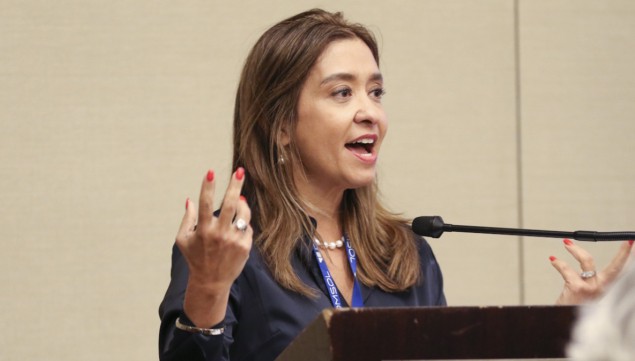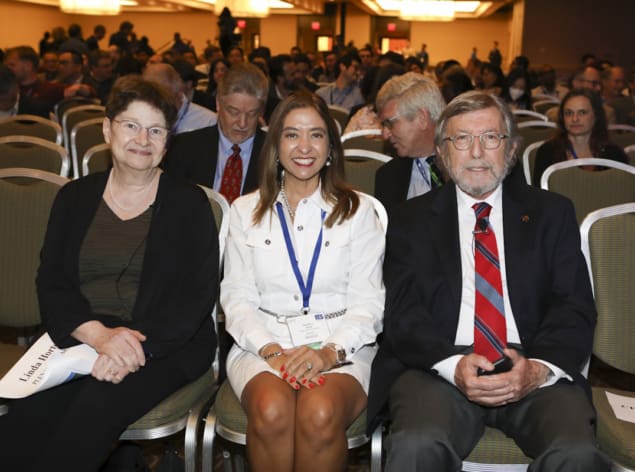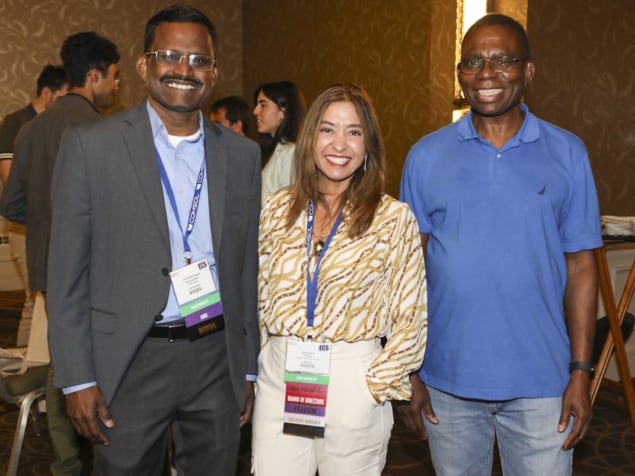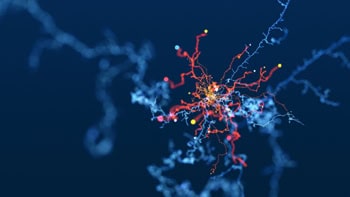As the new president of The Electrochemical Society, Gerardine Botte wants to inspire a broader awareness and understanding of the importance of electrochemical technologies for changing our world

Gerardine Botte, the new president of The Electrochemical Society (ECS), wants the world to know that solid-state science and electrochemistry have the power to transform our lives. Alongside the battery technologies that power our mobile devices and a growing fleet of emission-free vehicles, she points out that advances in electrochemical science and engineering are crucial for the development of fuel cells and hydrogen power, as well as a myriad of novel materials, sensors and devices for applications ranging from industrial manufacturing through to healthcare.
“We can imagine the world to be a much better place, all the way from safeguarding the environment to delivering the next generation of materials and biomedical innovations,” she says. “We need to make more people aware of the impact that electrochemistry and solid-state science can have in solving the grand challenges facing humanity and our planet.”
Botte, generally known as Gerri, has been a Fellow of the ECS since 2014 and a member since 1998. Now a professor specializing in food, water and energy sustainability at Texas Tech University, Botte is no stranger to driving positive change. She is a serial entrepreneur with several start-ups to her name, and recently founded and now directs an engineering research centre supported by the National Science Foundation (NSF) that brings together five academic institutions as well as industrial partners to create a circular economy for nitrogen-based fertilizers.
“I love changing the world and having an impact,” she says. “I’m really excited to be president of The Electrochemical Society, and I want to take the opportunity I have to make a difference.”

It’s no surprise, then, that Botte has an ambitious programme of initiatives in mind for her presidential year, which started at the beginning of June. Top of the list is extending the reach and influence of the society beyond its established community of electrochemical scientists and engineers. “Our biannual meetings already attract a diverse group of people, but we could work harder to deliver our message to other stakeholders, such as investors and policymakers,” she says. “We need to make the science relevant to people who are not directly involved in the research, so they can see the value of investing in these technologies.”
One specific initiative is to introduce different types of articles into the society’s publications. “Our journals are phenomenal, and lots of people read them because the science is incredibly strong,” Botte explains. “I’d like to work with our editors and divisions to publish perspective articles that cover broader topics, such as lifecycle analysis, sustainability and science policy, to enable our message to be heard at another level.”
As well as making connections with a wider circle of influencers, Botte is working closely with the society’s leadership team to reach out to geographic regions that are not yet well represented at the ECS. South and Central America are key priorities for Botte, who is originally from Venezuela, and she is working with chief executive officer Chris Jannuzzi to seed more student chapters throughout the region. A road-trip is in the works to inspire local scientists to become advisors for these student-led organizations, while Botte is also hoping to develop regional conferences to provide a stronger voice for under-represented populations within the society. “It’s more than simply co-sponsoring a conference and putting the ECS logo on it,” she says. “We want to bring the experiences from these different regions into the society and allow scientists from all over the world to take an active role in the society.”
Botte hopes that involving more students and scientists in the ECS will provide them with the same opportunities that she has enjoyed during her membership. “I have had tremendous support from the society throughout my career,” she says. “Through the meetings I have been able to meet with friends and colleagues, ask for advice, explore new collaborations, and find students and researchers to join our team, while the society has also provided letters of recommendation to support every level of my professional progression.”

Botte felt welcome at the ECS from her very first meeting as a graduate student, and as president she is continuing to look for new ways to make sure that people from different backgrounds and cultures feel at home within the organization. “Even small changes, such as providing a range of menu options at our events, can help us to embrace members with different cultural backgrounds,” she says. “We want everyone to feel included, to feel that they are part of our community, and to feel that they can be part of the society.”
Botte also hopes to partner with organizations that have been working to integrate diversity and inclusion into their processes and development programmes. “We need always to have this component present when we are planning our activities,” says Botte. “As an example, we need to reflect cultural diversity in our career development courses, plus we need to ensure that everyone has the same opportunity to benefit from the support and recognition offered by the society.”
Throughout her time at the ECS Botte has placed a strong emphasis on educating the next generation of scientists. In 2006 she launched an outreach programme within her division that over the years has enabled hundreds of high-school students to learn about electrochemical technologies and their applications. Now, as president, Botte is keen to expand the existing programme of travel grants, best-paper awards, and early-career fellowships that the society offers to its student members.
“We will need to raise funds to expand our initiatives for students and early-career researchers, but investing in the next generation of scientists could be an attractive option for philanthropic support,” she says. “We are reaching out to a few foundations that might make a contribution, while the society has some fantastic industry members that might support initiatives aimed at bolstering their efforts to hire electrochemical scientists and engineers.”

Botte’s ascendancy to the presidency comes after 25 years of commitment to The Electrochemical Society. Initially working within her division, which focuses on industrial electrochemistry and electrochemical engineering (IE&EE), she has taken an active role in various committees, established and organized awards, and served first as vice-chair and then chair of the IE&EE division.
“To become president you need to play all the roles in your division and the committees, because only then do you have the knowledge and understanding to join the executive committee and work at the society level,” she says.
In 2021 Botte became third vice-president of the ECS, kickstarting a five-year progression through society’s executive positions that includes her presidential year. “It’s very important to take the responsibility and make the commitment to the society,” says Botte. “I’m a woman, I’m Hispanic, and just being in the role helps to show future generations what’s possible, that they can feel represented, and that they can aspire to take leadership positions.”
Botte always has one eye on future, particularly on the students and early-career scientists that will sustain and grow the field of electrochemical science and engineering, as well as the ECS, for years to come. “It really is a community and I try to make sure that all my students and researchers recognize the value of the society, not just for their own professional careers but also to ensure that future generations can benefit from its support,” she says. “My goal is to extend the impact of the society so that we can inspire and support the electrochemical scientists and engineers of the future.”
With such an ambitious presidential agenda, Botte is well aware that the next 12 months is likely to go past in a blur. “It’s a lot to do in a year, but we’ve already been paving the way and developing some of the initiatives,” she says. “With the support of Chris and the other members of the executive committee, as well as the staff, the members, and our volunteers, I think we’re going to do great.”



